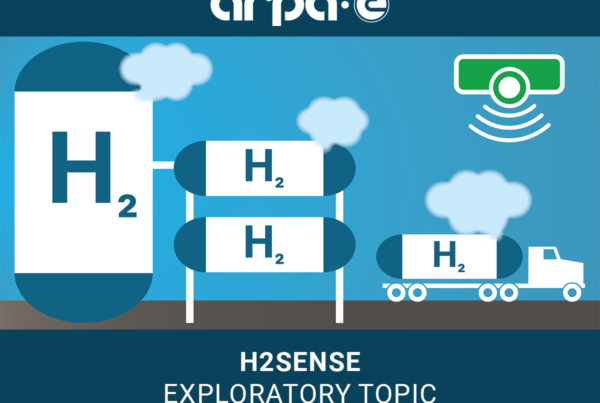
SURREY, BC – The Government of Canada is making it easier for Canadians to drive electric and transforming the way Canadians get to where they need to go.
As part of #EVWeekinCanada, Randeep Sarai, Member of Parliament for Surrey Centre, on behalf of the Honourable Seamus O’Regan Jr., Minister of Natural Resources, announced a combined investment of over $2.6 million to support cities across British Columbia with more options to drive cleaner, putting Canadians in the driver’s seat on the road to a net-zero future.
These contributions will help install 79 electric vehicle (EV) chargers and two hydrogen stations across the province to support Canada’s net-zero future.
- HTEC received $2 million to install two hydrogen refuelling stations, one in Victoria and one in Surrey.
- The City of Surrey received $150,000 for three EV fast chargers across the city. The Government of B.C., through its CleanBC Go Electric Program, is also contributing $75,000 toward this initiative. The total project cost is over $370,000.
- The Ownership Group of Central City received $99,900 to install 24 EV chargers at a parkade at Surrey’s Central City. The total project cost is over $250,000.
- First West Credit Union received more than $99,000 to install 20 EV chargers across Langley, B.C. First West Credit Union is contributing over $97,000 toward this initiative, bringing the total project cost to over $195,500.
- The City of Richmond received $340,000 to install 32 EV chargers across Richmond. The city is also contributing $900,000 toward this initiative, and the Government of B.C., through its CleanBC Go Electric Program, is also contributing $100,000, bringing the total project cost to $1,340,000.
Funded through Natural Resources Canada’s Electric Vehicle and Alternative Fuel Infrastructure Deployment Initiative and Zero-Emission Vehicle Infrastructure Program, all chargers will be available for public use between now and March 2023.
Since 2015, Canada has made a historic investment of over $1 billion so far to make EVs more affordable and charging infrastructure more locally accessible. These investments are building a coast-to-coast network of fast chargers and installing chargers in local areas where Canadians live, work and play. The government also provides incentives of up to $5,000 to help Canadians buy EVs and full tax write-offs for businesses purchasing them.
These investments support Canada’s new mandatory target of 100-percent zero-emission light-duty vehicle sales by 2035. Driving down transportation emissions is critical to achieving Canada’s ambitious climate change targets and requires a combination of investments and regulations to support Canadians and industry in this transition.
The government supports green infrastructure projects that create good, middle-class jobs and get us to net-zero emissions by 2050.
The Honourable Seamus O’Regan Jr Minister of Natural Resources.: “We’re giving Canadians the greener options they want to get to where they need to go. We’re building a coast-to-coast network of electric vehicle charging stations from St. John’s to Victoria, and now we’re building more right here in British Columbia. This is how we get to net zero by 2050.”
Randeep Sarai, Member of Parliament for Surrey Centre: “Our government is committed to the protection of our environment and the reduction of greenhouse gas emissions. Today’s announcement solidifies that commitment by building on our government’s plan to provide clean and sustainable transportation options to the people in Surrey Centre and across B.C.”
Garry Begg, Member of Legislative Assembly for Surrey–Guildford:
“More and more British Columbians are switching to electric vehicles to save on fuel costs and reduce air pollution. Through CleanBC, we’re working with our partners to expand our EV charging network in Surrey and across the province, make it easier for drivers to go electric and put B.C. on the road to a clean energy future.”
Doug McCallum, Mayor, City of Surrey: “By expanding our EV charging network, we are ensuring that electric vehicle ownership in our city is accessible and convenient for drivers who are looking to switch to a clean mode of transportation. EV ownership in Surrey is rapidly growing, almost doubling each year since 2016, illustrating our community’s shift to a clean energy future. Together with the Government of Canada and the Province of B.C., we are committed to investing in green and sustainable transportation options.”
Bill Rempel, Blackwood Partners Management Corporation: “Our entire team at Central City is very proud to have participated with this wonderful federal program, to do our part in increasing the number of EV charging stations on our property and to contribute to improving air quality as we all move toward a net-zero future.”
Malcolm Brodie, Mayor, Richmond:“Richmond was an early adopter of public EV chargers and the first city in North America to require that 100 percent of residential parking stalls feature an energized outlet capable of EV charging. Electric mobility will be key to achieving our goal of becoming a zero-carbon city by 2050. We want residents and visitors to know they have access to a growing network of EV chargers and that we support the move toward zero-emission vehicles.”
Colin Armstrong, President and CEO, HTEC: “HTEC is proud of the role we are playing to ensure Canada achieves its goal of net-zero emissions by 2050. NRCan’s ongoing investment in clean hydrogen infrastructure is helping us make zero-emission transport possible across British Columbia. Together, we are building the low-carbon future we want to live in and leave behind for future generations.”
- Transportation accounts for 25 percent of total greenhouse gas emissions in Canada.
- There are over 6,000 publically accessible charging stations across Canada, compared with approximately 12,000 gas stations.
- Investments in charging infrastructure made so far will result in more than 17,000 new charging stations available to Canadians.
- There are more than 50 models of zero-emission vehicles Canadians can choose from to make greener transportation choices.
Read the most up to date Fuel Cell and Hydrogen Industry news at FuelCellsWorks




